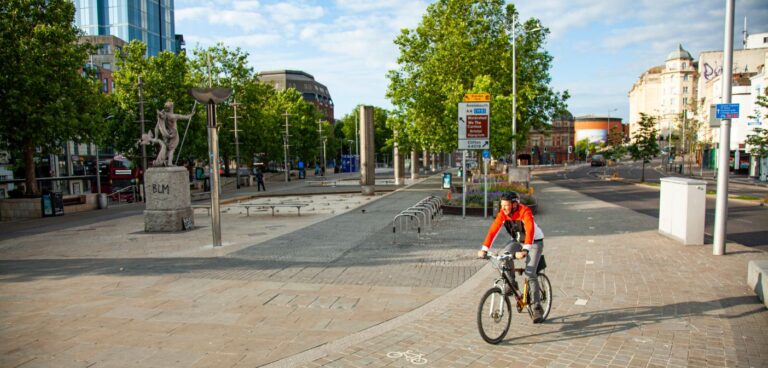Bristol City Council is the latest local authority in England to announce that it is looking at an alternative option to a charging clean air zone (CAZ) to improve air quality in the city.
Last week, Leeds City Council revealed that it is to indefinitely suspend plans to introduce a CAZ, following a significant reduction in air pollution during the coronavirus crisis.
Bristol City Council said it is looking at an alternative option to improve air quality in line with legal duties and a direction from the UK government, which would avoid compounding challenges currently facing citizens and businesses.
Bristol is required to submit a scheme that would implement a CAZ by March 2021, unless evidence shows another option can reduce air pollution faster.
Options Bristol has explored to date include:
- A CAZ over a medium area (CAZ C), which charges non-compliant commercial vehicles such as buses, coaches, taxis, private hires, heavy and light goods vehicles, but not private cars.
- A hybrid CAZ scheme featuring the medium area CAZ C, as above, and a smaller zone where private diesel vehicles are banned from entering between 7am and 3pm daily.
- A CAZ over a small area (CAZ D) for all older, more polluting vehicles. This is an extension of CAZ C to include non-compliant private vehicles. Bristol is required to consider modelling and implementing this option alongside considering additional measures, such as improving walking and cycling and traffic flows.
According to Bristol City Council, latest air quality monitors demonstrate that despite traffic levels increasing, the city centre’s pollution has remained relatively low, partly due to changes in lifestyle, work and travel behaviours as a result of the pandemic.
As such, the council has proposed Bristol could continue accelerating transport improvements, such as a return to improved public transport links to road changes, increased walking and cycling routes and pedestrianising areas.
Marvin Rees, mayor of Bristol, said he believes this will help clean up journeys and encourage more people to change their travel habits: “Our plans have always been about cleaning up our air in the fastest possible time and not being anchored to one method. We must be flexible in our approach and work together to get this right as a city. Everyone has a role to play in reducing air pollution and if we all rise to the challenge, we can avoid bringing in costly measures.
“We will continue to do the work needed for the charging options we’ve already been developing. It is right that we explore new opportunities in line with the dramatic changes in our lifestyles, travel and income that residents and small businesses experienced following lockdown. The end result could actually achieve cleaner air faster whilst avoiding unintended negative consequences caused by charging vulnerable communities in Bristol.”
The updated clean air plans include bringing forward ‘fast track’ additional measures to improve air quality. These include controlling signals to improve the flow of traffic, enhancing air quality in pollution hotspots, and additional air quality monitoring units to keep track of progress. Furthermore, as part of the council’s new ‘test and learn approach’, transport upgrades will be rigorously reviewed against an evidence base on traffic, travel patterns and air pollution levels.
If modelling shows Bristol can sustain improved air quality and traffic levels, it could mean planned charging measures on polluting vehicles are no longer needed, according to the council.
On 1 September, the council’s cabinet will consider details for a public consultation planned for this autumn on the new proposals for charging zones, to accompany new evidence being collected. This would mean setting a new deadline of February 2021 for submission of the final business case, setting out the council’s preferred scheme.
Depending on the outcome of the consultation and new evidence being collected, Bristol City Council said a small zone could be created in the spring of 2021 but only if needed, potentially going live to the public from October 2021. However, the cabinet will also consider proposals for developing the option without charging, alongside charging measures directed by government.
The council said it has been working with the UK government’s Joint Air Quality Unit to develop the full range of options, including a scheme without charging.





